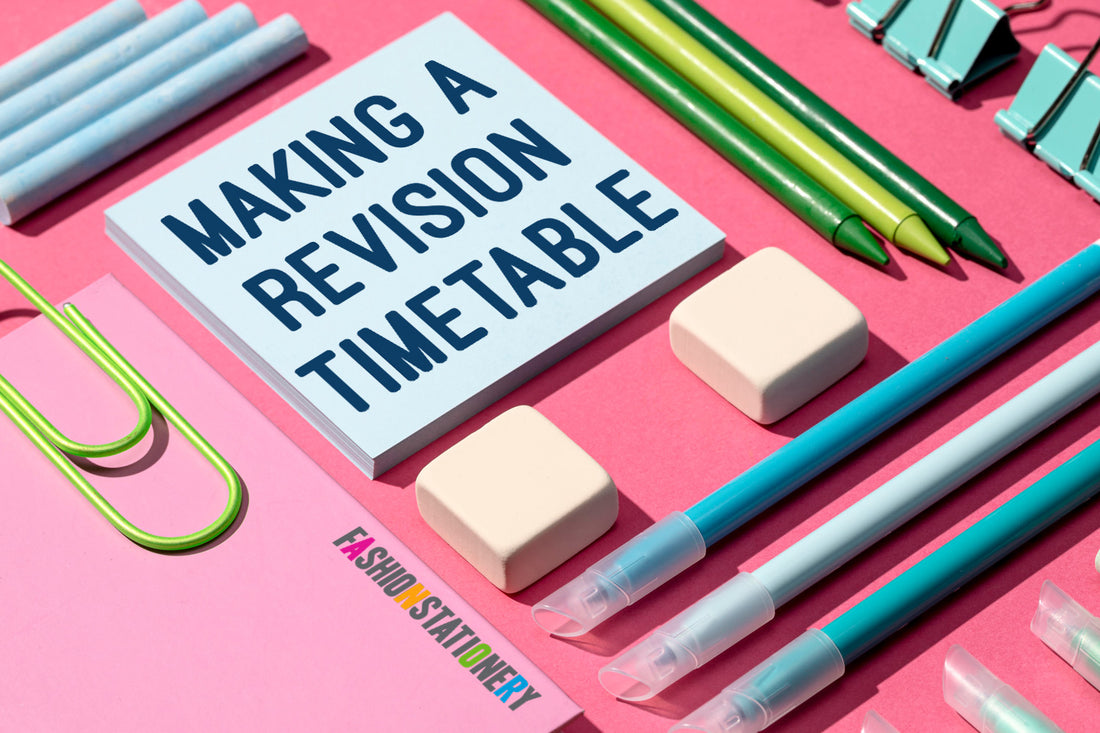
Tips to Help You Create an Effective Revision Planner
Share
A revision planner can help break up subjects into manageable chunks, you can organise and prioritise tasks which can help you feel more in control. Make sure it works for you and that you include time for hobbies and breaks while getting the most out of your study time.
Here are some tips and things to consider when creating a timetable to help you reach your revision goals:
- How much time do you have available for study each week? (Remember to factor in time spent at school or college, extracurriculars and other activities).
- Prioritise your subjects, those you find more challenging need more time spent on them.
- Colour code subjects for a clear overview of what you will be studying on a certain day. This quickly highlights topics that you may have neglected and helps you swap things about (it also makes your timetable prettier to look at).
- Break subjects into topics, focus on each section individually and avoid being overwhelmed. Working in smaller chunks makes it easier to retain information.
- A 30 minute revision session with a 10 minute break is a good combination for a successful study session. This can be adjusted if you find a different combination more effective.
- Vary what you are revising through the week. Don't neglect topics if you find them 'easy', but do weight revision to what you struggle with more. Mix it up between the two so that you don't become bogged down in difficult subjects and you will feel the benefit of something you find more achievable.
Find our free downloadable revision planners here
You can shop clear pencil cases here and find our mini highlighters here
